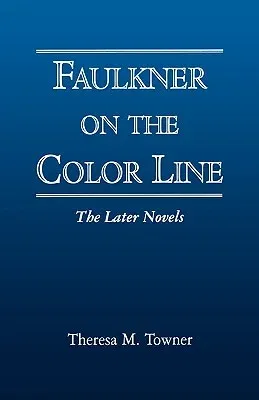Theresa M Towner
(Author)Faulkner on the Color Line: The Later NovelsPaperback, 1 May 2000

Qty
1
Turbo
Ships in 2 - 3 days
In Stock
Free Delivery
Cash on Delivery
15 Days
Free Returns
Secure Checkout
Print Length
192 pages
Language
English
Publisher
University Press of Mississippi
Date Published
1 May 2000
ISBN-10
1934110353
ISBN-13
9781934110355
Description
Product Details
Author:
Book Format:
Paperback
Country of Origin:
US
Date Published:
1 May 2000
Dimensions:
21.59 x
13.97 x
1.12 cm
ISBN-10:
1934110353
ISBN-13:
9781934110355
Language:
English
Location:
Birmingham
Pages:
192
Publisher:
Weight:
249.48 gm

